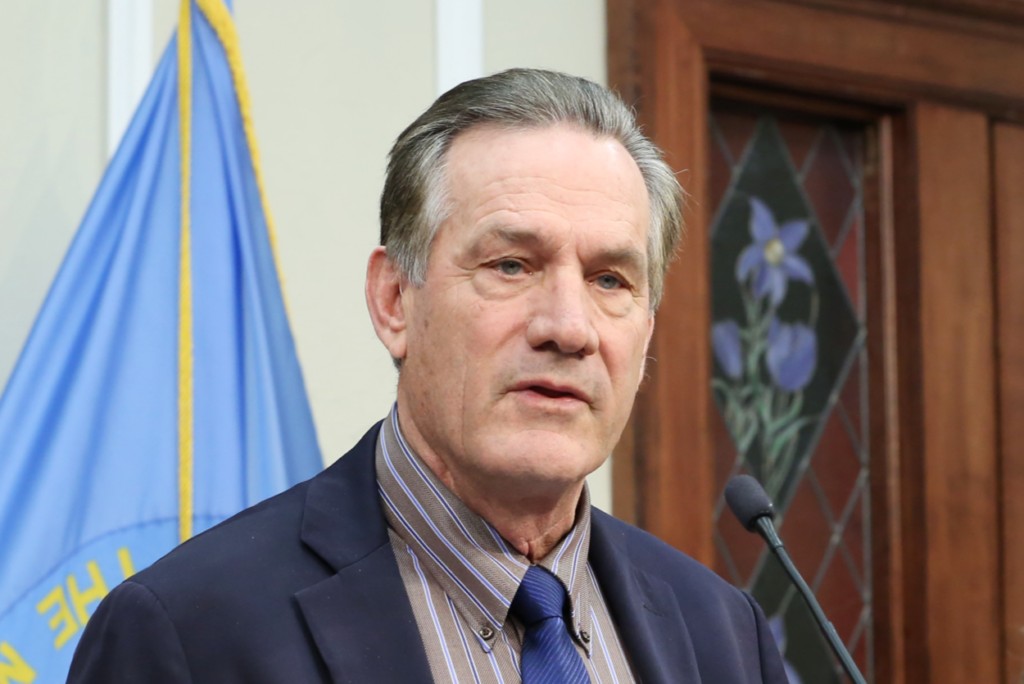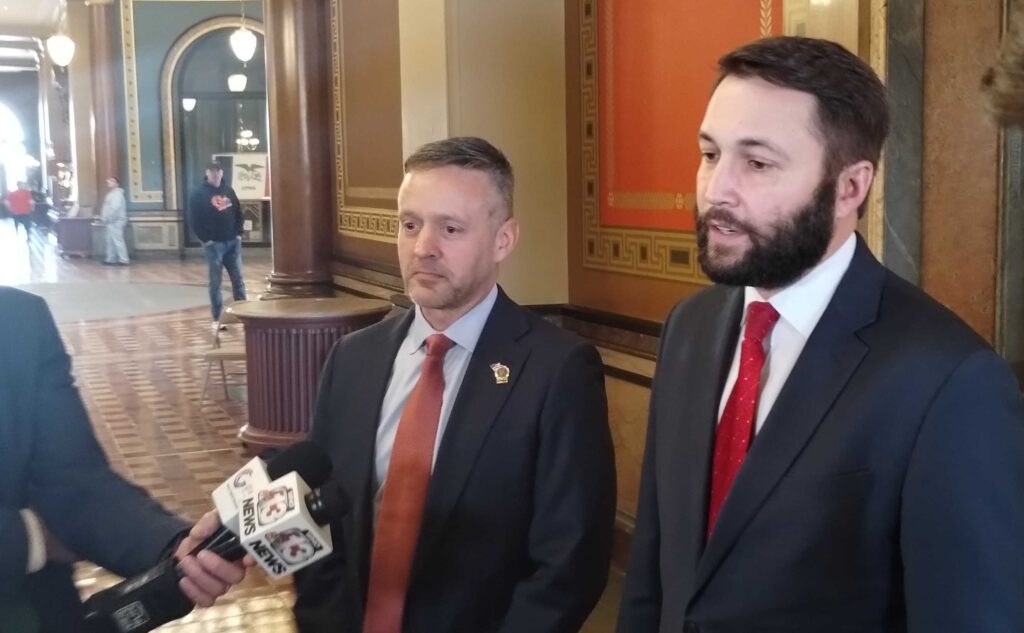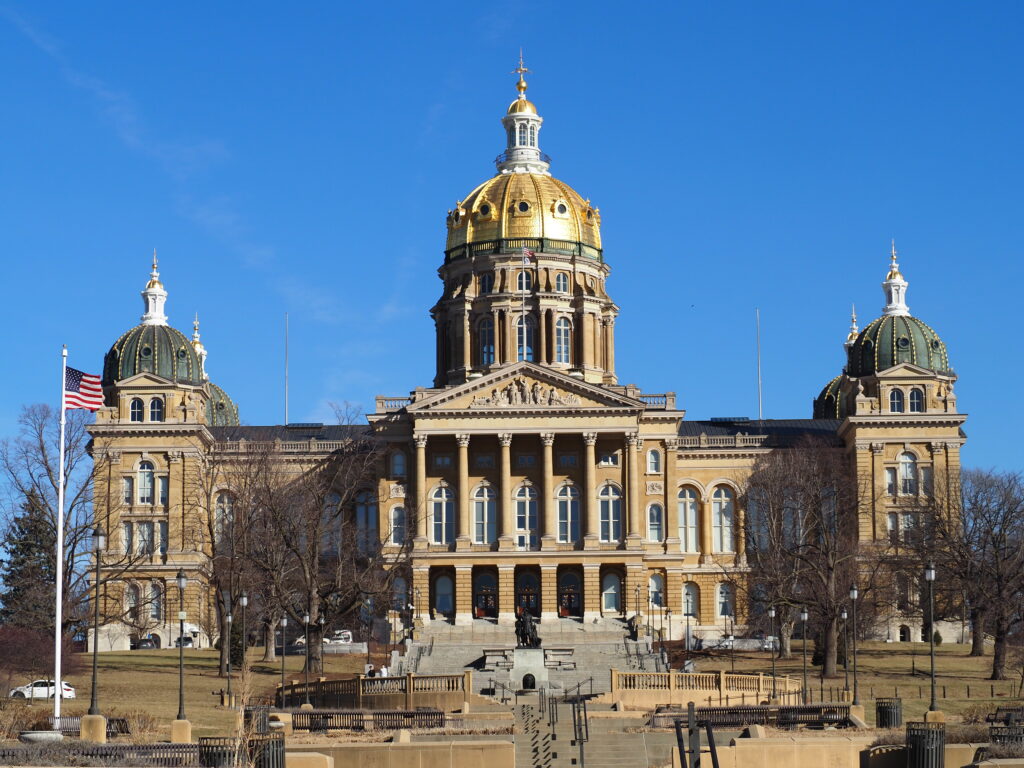Your cart is currently empty!

South Dakota Governor Signs Eminent Domain Ban on Carbon Pipelines

By: Joshua Haiar
South Dakota Republican Gov. Larry Rhoden announced Thursday that he signed a bill banning the use of eminent domain for carbon dioxide pipelines, delivering a victory to property-rights activists who spent several years advocating for the bill.
Eminent domain is the right to access private property for projects that benefit the public, with compensation determined by a court. It’s commonly used for projects such as electrical power lines, water pipelines, oil pipelines and highways.
The legislation passed the state Senate on Tuesday after passing the House in late January. It prohibits carbon pipeline developers from using eminent domain to acquire land. The issue has been at the center of a contentious debate over Iowa-based Summit Carbon Solutions’ proposed $9 billion carbon capture pipeline.
The project would transport carbon dioxide from more than 50 ethanol plants in five states, including eastern South Dakota, to an underground storage site in North Dakota. It would qualify for billions in federal tax credits incentivizing the sequestration of heat-trapping greenhouse gas emissions.
In a letter explaining his decision, Rhoden, a western South Dakota rancher and former legislator, emphasized his longstanding commitment to property rights and framed the bill as a means to restore trust between landowners and developers.
“I am no stranger to discussions about eminent domain and property rights,” Rhoden wrote. “l’ve fought for private property rights in this Capitol for over 20 years. When I was a legislator, I was the prime sponsor of legislation that reformed eminent domain to protect property rights. I don’t just care about landowners — I am a landowner.”
Supporters of the bill have argued that private companies like Summit should not be able to access land against the will of its owners. Opponents, however, contended that the measure could harm the ethanol industry, which is seeking ways to lower its carbon footprint as some states and countries limit sales of carbon-intensive fuels.
Rhoden said voluntary land-access agreements known as easements should be the path forward. He said his signature of the bill “does not kill the proposed project.”
“I encourage Summit and others to view it as an opportunity for a needed reset,” he wrote. “Voluntary easements for this proposed project will still be able to move forward.”
Summit, in a statement, said the ban “changed the rules in the middle of the game.”
“This kind of regulatory uncertainty creates real challenges — not just for our project, but for the ethanol plants in South Dakota that now face a competitive disadvantage compared to their counterparts in neighboring states,” Summit said. “While this presents obstacles, our project moves forward in states that support investment and innovation, and we will have more news on that soon.”
In response to a question from South Dakota Searchlight about whether the company might challenge the new law in court, Summit provided a statement that said “all options are on the table but we remain focused on working with stakeholders to support the long-term success of the ethanol industry and support the president’s goals of American energy dominance.”
“It’s unfortunate that a piece of legislation has been framed around a single company rather than addressing broader infrastructure and economic policy,” the company added.
I don’t just care about landowners — I am a landowner.
– South Dakota Gov. Larry Rhoden
Summit has not yet received a permit from the South Dakota Public Utilities Commission. The company’s initial application was denied in 2023, largely due to the route’s conflicts with local ordinances that mandate minimum distances between pipelines and existing features. The company has since made some adjustments to its route and reapplied, and that application is pending.
The project has received permits in Iowa, Minnesota and North Dakota, while Nebraska does not have a permitting process, and some of the permits have been challenged in court. The company’s Iowa permit does not allow construction to begin until it receives permits in the Dakotas.
The bill’s passage follows a shift in the South Dakota’s political landscape, with opponents of eminent domain gaining influence in the Legislature. Last year, lawmakers passed a compromise bill that imposed new restrictions on carbon pipelines and implemented new protections for landowners and counties, but did not ban eminent domain. That measure faced fierce opposition. It was referred to the ballot in November and defeated, and 14 Republican incumbents lost their legislative seats in the June primary. This legislative session, some prominent critics of eminent domain were elevated into leadership positions.
Sen. Joy Hohn, R-Sioux Falls, is among the new crop of legislators who supported the eminent domain ban.
“The use of power of condemnation by a private company for the benefit of potential future markets is not worth the dangerous president it sets for future generations,” Hohn said. “On behalf of South Dakota citizens and property owners across our great state, we are so grateful to Governor Rhoden.”





Leave a Reply